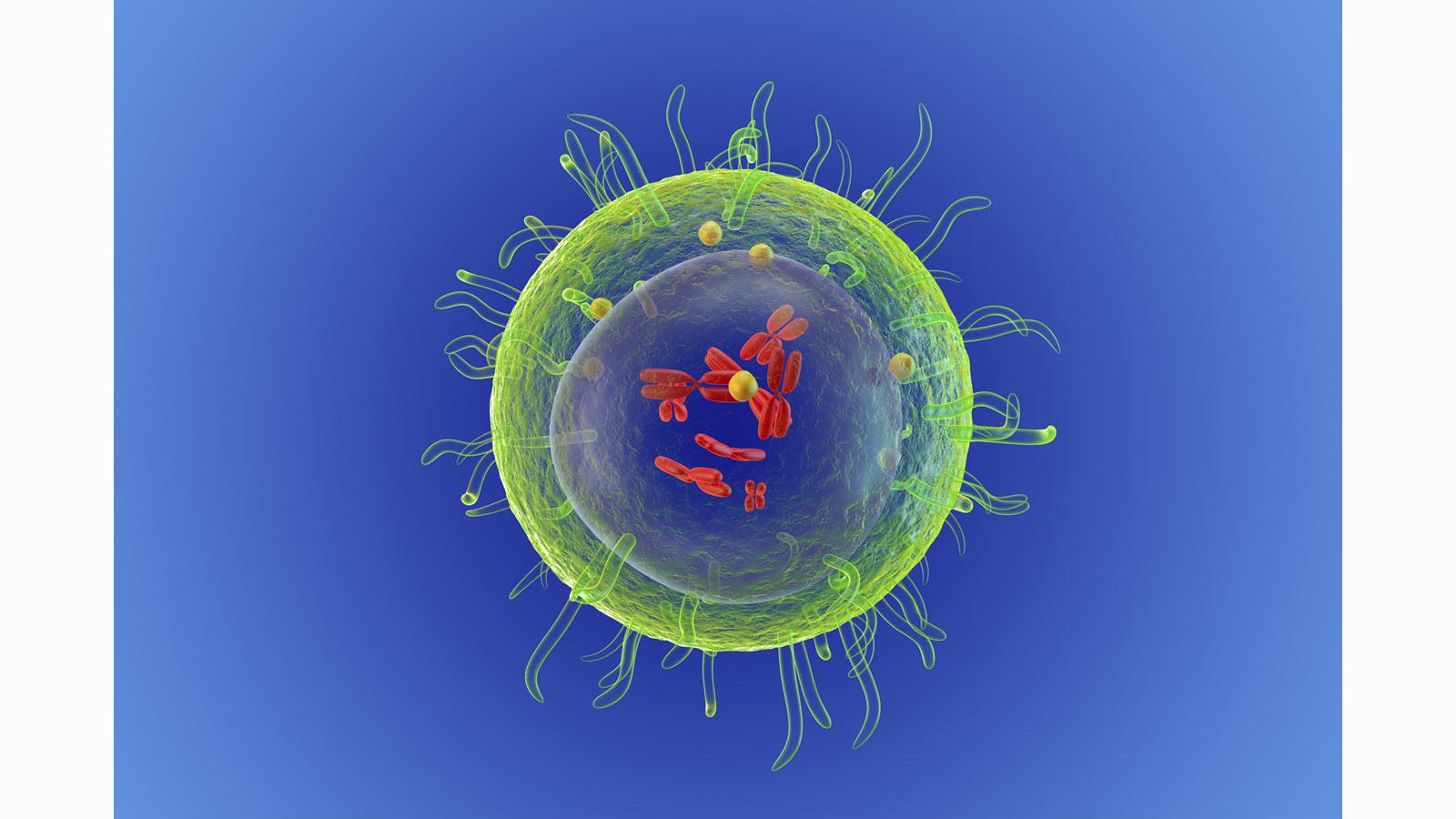When we talk about the immune system, we often compare it to an army inside our bodies fighting off invaders. In the immunological armed forces, T cells are special forces soldiers, impeccably trained to recognize and attack pathogens that enter our bodies.
In the human body, you’ll find billions of T cells, , so called because they’re produced in the thymus gland, located behind the breastbone. Each T cell is made to respond to a specific virus, bacteria or fungus. When a T cell sees a pathogen it recognizes, it immediately mobilizes to attack the invader or help activate other parts of the immune system. Not surprisingly, T cells come up often when researchers are discussing COVID-19 and how to build a durable defense against the mutating virus.
T cells are white blood cells called lymphocytes, and they’re part of what’s called the adaptive immune system. After the innate immune system, it’s the second line of defense our bodies have against intruders like viruses and bacteria. The adaptive immune system lives up to its name. It adapts and gets smarter based on past infections.
“It’s really the part of your immune system that learns over time,” said Hey Jin Chong, chief of the division of Pediatric Allergy and Immunology at UPMC Children’s Hospital of Pittsburgh in a recent webinar for the Immune Deficiency Foundation. “That’s either through infection or vaccination. Your immune system learns to get faster and better.”
Some rare conditions prevent the body from making T cells, or from making enough of them. These immunodeficiencies include DiGeorge syndrome, severe combined immunodeficiency (SCID), Wiskott-Aldrich syndrome, Ataxia telangiectasia and more, and they typically mean a patient is highly susceptible to infections. T cells are so important to the adaptive immune system that it is essentially crippled without them. Patients with this kind of immunodeficiency can suffer from severe illnesses and, Chong says, opportunistic infections, diseases that aren’t typically able to infect people with healthy immune systems.
Where Do T Cells Come From?
T cells begin their lives as stem cells in the bone marrow. From there, they migrate to the thymus, a gland located just above the heart, to mature. Only the best survive, just 2 percent. The surviving T cells can both react to signaling molecules in the immune system and don’t attack the body’s own cells, which can lead to autoimmune reactions.
From the thymus, T cells are released to patrol the body, where they circulate in the blood and the lymphatic system and go on the lookout for pathogens. Each T cell is primed to respond to a specific antigen, which are molecules that identify pathogens. When they see their target antigen, T cells spring into action, attacking the invaders and calling out to the rest of the immune system for help.
“Your body is like ‘I know what this is, I totally recognize this’ and you’re going to have an immune system response,” Chong said.
Types of T Cells
There are many different kinds of T cells, but the two most important are CD8+ T cells, also called cytotoxic T cells, and CD4+ T cells, or helper T cells. CD8+ T cells recognize and kill pathogens, and CD4+ T cells tell other parts of the immune system to come help fight infections. Other kinds of T cells include regulatory T cells, that help to protect the body against autoimmune reactions, and memory T cells, that remember past infections and help the body respond more quickly should it get infected by something again.
Aside from killing pathogens and virus-infected cells, T cells also play a crucial role in communicating during an infection. Using molecules called cytokines, different types of T cells are able to tell the body what’s going on and what’s needed to combat an infection. This might include telling specific CD8+ T cells to multiply quickly to provide more foot soldiers, or telling B cells to make antibodies.
T cells are even involved in some cancer treatments today. The branch of cancer treatment known as immunotherapy relies on activating T cells to fight tumors, allowing the body to combat tumors itself. And a different treatment called CAR-T therapy involves making engineered T cells in the lab that are primed to attack specific tumors and then injecting them into a cancer patient’s body.
So how can you support your essential T cells? Nutrition plays a role, specifically certain amino acids in protein are essential for T-cell function, according to UC Davis Health. But it’s flawed to say a healthy diet “boosts” the immune system. Instead, aim to “maintain your functional immune system” by avoiding malnutrition and deficiencies in important micronutrients, a Mayo Clinic dietitian said.



